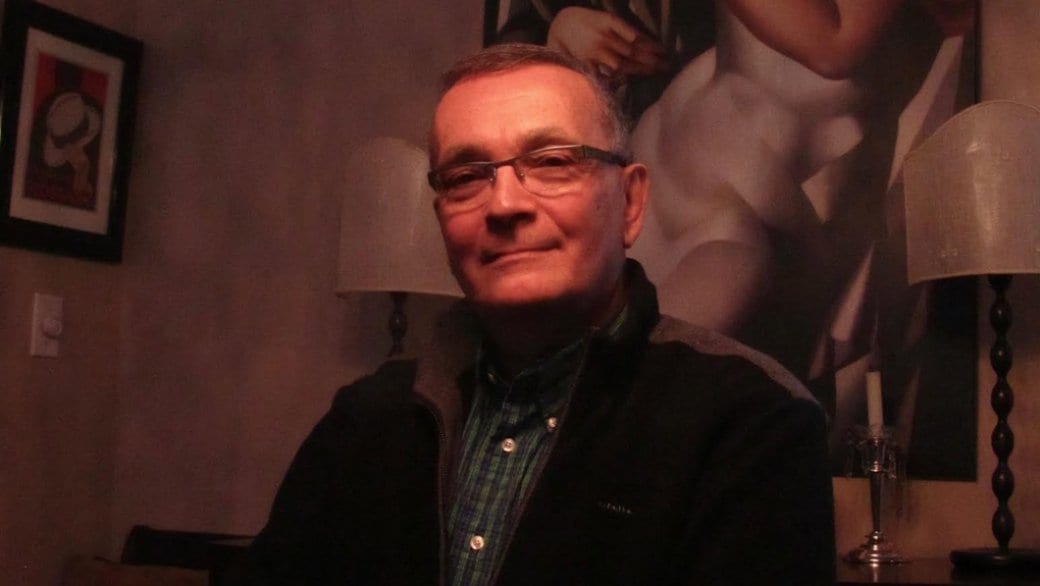As a gay high school student in the 1960s, Brian Hobbs knew that each day at 4 o’clock he could return to the safety of his home. But in retirement and long-term care facilities, Hobbs says there are LGBT seniors who have nowhere to go.
“If you’re being bullied in a nursing home, that is your home, and you can’t go anywhere else,” he says. “That’s where you live.”
People in retirement and care homes who are lesbian, gay bisexual or transgender are more vulnerable than other residents because of possible discrimination at the hands of staff and other residents, Hobbs notes.
According to an Ipsos Reid survey of Ottawa LGBT seniors conducted in 2015, only 45 percent of respondents said they thought they would be accepted in a retirement community or care facility.
Recognizing a problem, the Ottawa Senior Pride Network (OSPN) has developed a program that trains staff at these facilities about respecting LGBT residents.
Hobbs has come a long way from being a bullied teenager. Since retiring from the public service, he has been volunteering as a trainer with the OSPN.
Part of it, Hobbs says, is for selfish reasons. “If I do wind up in a senior’s residence or nursing home, I would hopefully be treated with respect and dignity,” he says.
Right now, he notes that LGBT seniors in long-term care homes are fearful of being identified as gay by other residents or staff.
Until last year, Hobbs would drive a friend once a week to visit that friend’s partner at the hospital where he was living. “They would say to me, ‘We just want to hold hands,’ or ‘We’d just like to sit on the edge of the bed together,’ ” Hobbs recalls.
“They used to say, ‘If you see the nurse coming, or one of the personal service workers, give us a signal and I’ll jump off the bed,’ ” Hobbs says. “They were afraid that if they were caught there would be repercussions.”
It’s a fear that is understood — as a public servant for 30 years, Hobbs never came out to his co-workers.
Although homosexuality was decriminalized in 1969, Hobbs says the legacy of federal policies targeting homosexuals throughout the ’50s and ’60s meant there was deep-rooted homophobia in his workplace.
In 1959, at the height of the Cold War, the federal public service initiated a “homosexual screening program” on the basis that gay men and lesbians were more susceptible to “blackmail and subversion” by Soviet agents, according to Gary Kinsman and Patrizia Gentile in their book The Canadian War on Queers. And it wasn’t until 1973 in Canada when homosexuality was no longer considered a mental illness.
The main goal of the training sessions is to “put LGBT seniors’ lives into perspective,” says Mary Harvey, OSPN’s training coordinator.
Seniors are four times less likely to have children than their straight counterparts, and often have lost connection to their families, she notes.
“We have a family of choice, we have our friends, but they’re getting elderly alongside us,” she says. “And those of us who are in our 60s, 70s, 80s and 90s went through the AIDS crisis . . . we lost half our network of support.”
The City of Ottawa has identified the needs of LGBT residents in long-term care homes as a concern since 2008, the year the OSPN was created, says Aaron Burry, Ottawa’s general manager of community and social services, in an email.
Burry also writes that Ottawa’s Older Adult Plan, released in 2012, included an action to “raise awareness within the City-operated long-term care homes on the needs of lesbian, gay, bisexual and transgendered adults.”
The OSPN currently trains staff and volunteers at retirement homes and care facilities, but Harvey says educating heterosexual seniors about the history of their LGBT peers has been identified as a goal moving forward.
The OSPN plans to make connections with more long-term care facilities, develop new training material and create a French language program.
Aside from helping LGBT seniors in care homes, the training program has helped its volunteers, too. When he began volunteering with the OSPN, Hobbs felt “very uncomfortable” telling people he was gay.
Now, he feels he can be more open about his sexuality. “Coming out is stages all your life,” he says. “It’s a process, even for someone my age.”


 Why you can trust Xtra
Why you can trust Xtra


